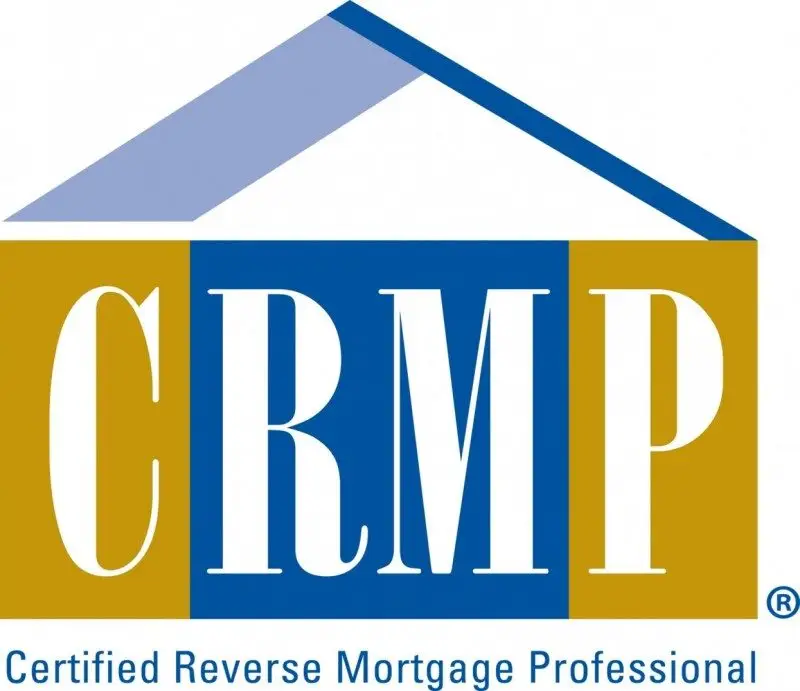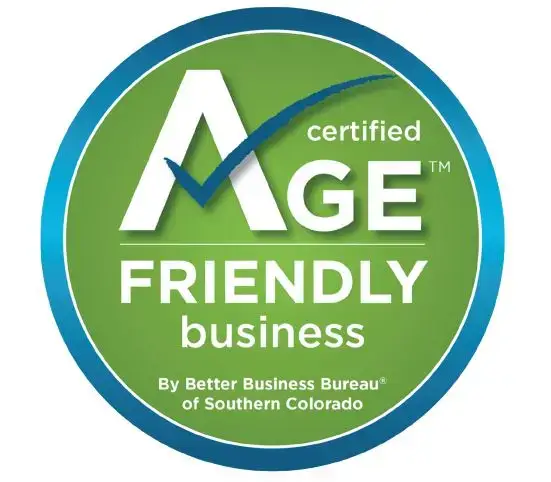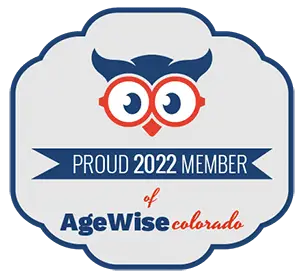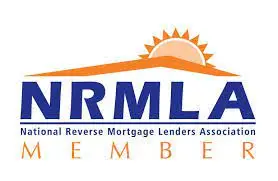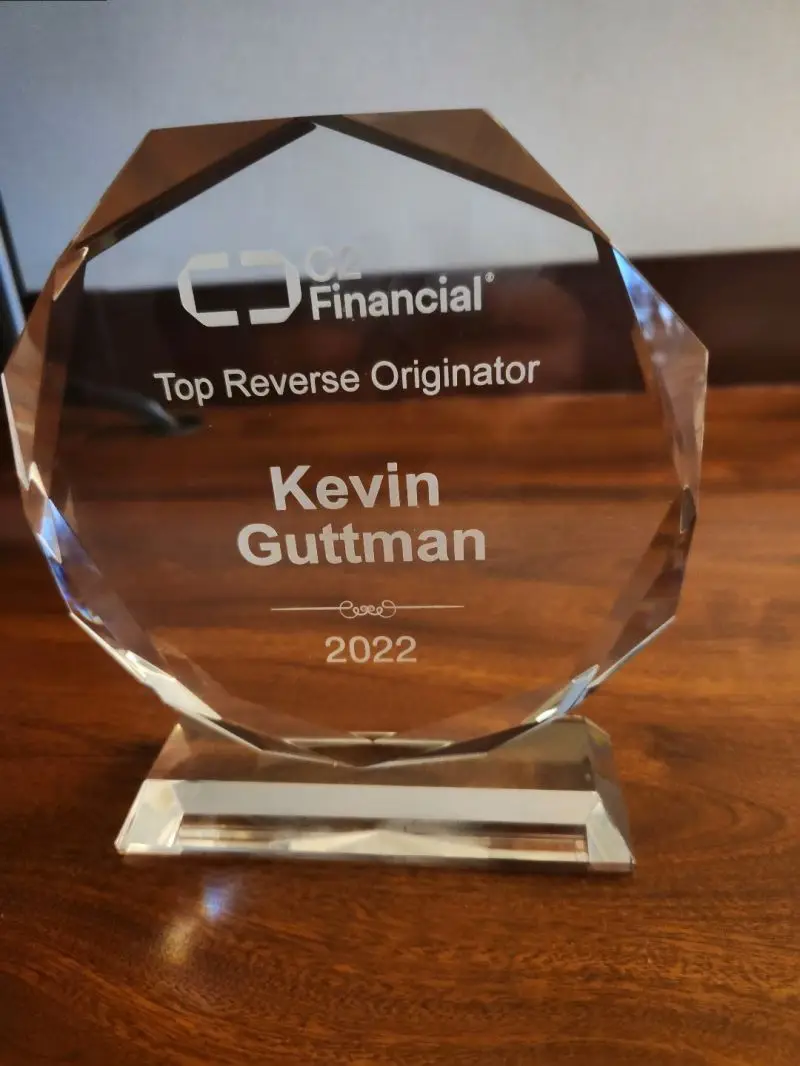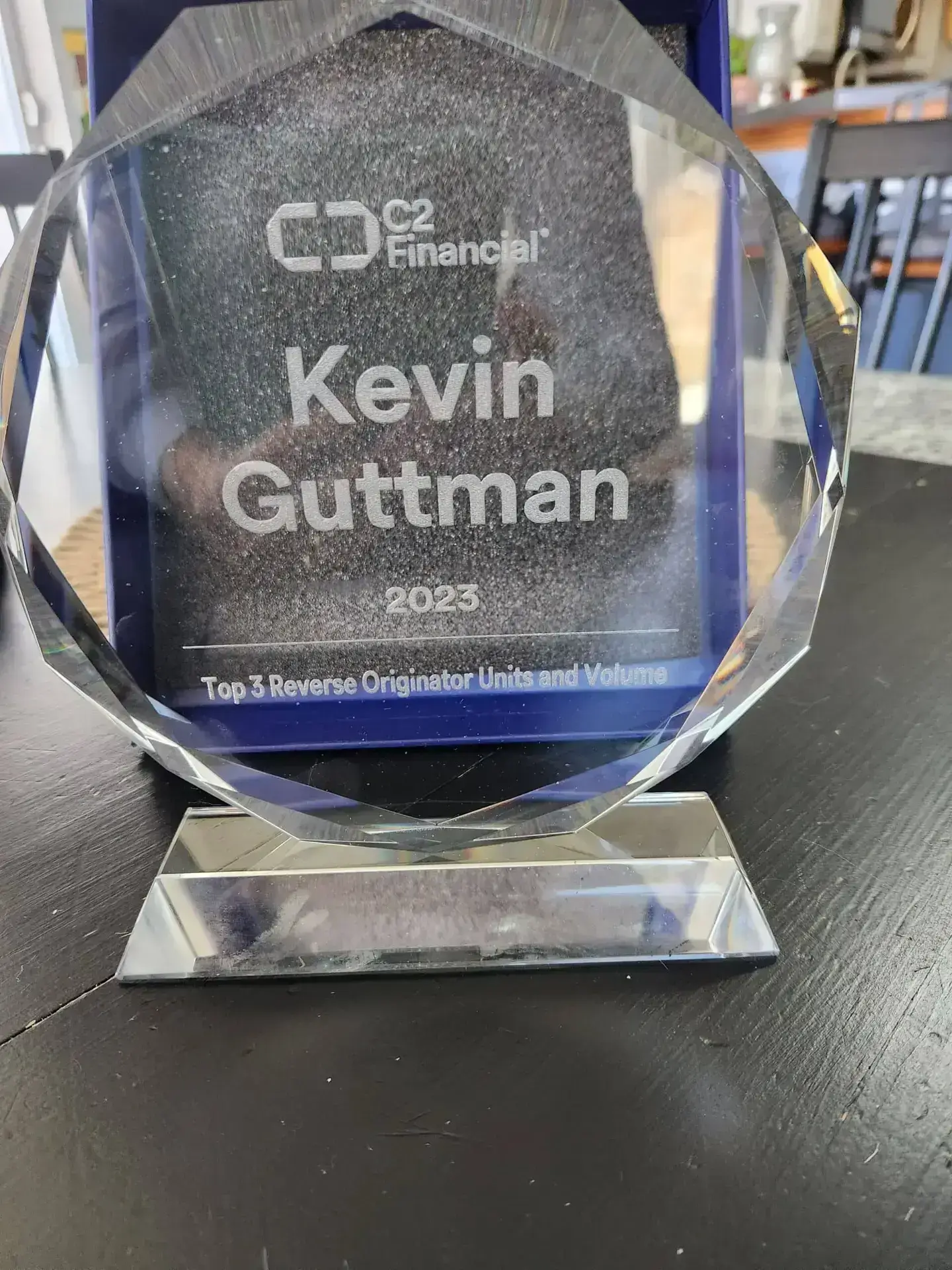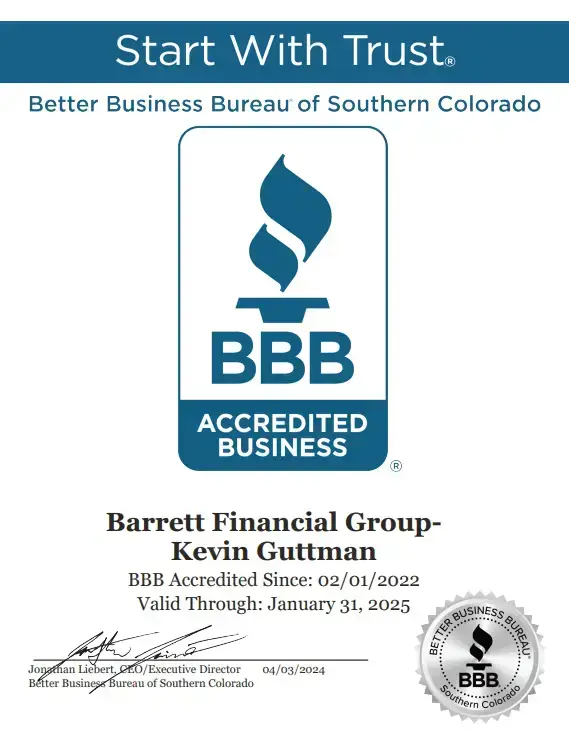Reverse Mortgage Jefferson County CO – For many seniors in Jefferson County, Colorado, home equity is their greatest asset in retirement. In fact, Americans 62 and older collectively hold over $6 trillion in home equity, and in Jefferson County the median home value is around $600,000. A reverse mortgage (officially known as a Home Equity Conversion Mortgage, or HECM) allows older homeowners to tap into that home equity in retirement without selling their house. However, if you’ve ever searched online for information – perhaps typing something like “reverse mortgage Jefferson County CO” – you’ve likely encountered a lot of myths and misconceptions. These myths can cause unnecessary fear and confusion for seniors and their families.
Many Jefferson County seniors have significant equity in their homes. A reverse mortgage can help convert that equity into cash flow for retirement, but it’s important to separate myth from fact.
Kevin A. Guttman, a Certified Reverse Mortgage Professional (CRMP) serving Colorado seniors, has helped countless local homeowners understand the facts about reverse mortgages. In this post, we’ll debunk 5–7 of the most common reverse mortgage myths – covering topics like home ownership, debt to heirs, safety, and costs – so you can make an informed decision. No fictional scare stories here, just clear explanations and truth. By the end, you’ll see how a reverse mortgage can safely unlock your home equity in retirement while preserving your home and peace of mind. Let’s get started!
Table of Contents
- Myth #1: “You No Longer Own Your Home with a Reverse Mortgage.”
- Myth #2: “The Bank Can Force Me Out of My Home (I Could Outlive the Loan).”
- Myth #3: “You’ll End Up Owing More Than Your Home is Worth (and Leave Debt to Your Family).”
- Myth #4: “My Heirs Will Lose the House and Get Nothing.”
- Myth #5: “Reverse Mortgages Are Unsafe or a Scam.”
- Myth #6: “Reverse Mortgages Have Hidden Fees and Are Too Expensive.”
- Myth #7: “Reverse Mortgages Should Only Be a Last Resort for the Desperate.”
- Empowering Jefferson County Seniors – Get the Facts and Next Steps
- About the Author: Kevin Guttman
Myth #1: “You No Longer Own Your Home with a Reverse Mortgage.”
The Myth: A pervasive misconception is that the bank or lender will take the title of your house once you get a reverse mortgage – essentially that you’re signing your home over to the bank. Many assume they’ll lose ownership and control of their property.
The Reality: You remain the owner of your home with a reverse mortgage, just as with any traditional mortgage. Your name stays on the title, and you retain all ownership rights. The lender does not take ownership; instead, they place a lien on the property (as security for the loan repayment) – exactly like a regular mortgage or home equity loan. This means you continue to have the freedom to live in, maintain, or even sell your home at any time.
It’s important to note that with any mortgage (reverse or otherwise), you must meet certain obligations to remain in good standing. For a reverse mortgage, those obligations include:
- Living in the home as your primary residence.
- Keeping up with property taxes and homeowner’s insurance.
- Maintaining the home in reasonable condition.
As long as you continue to meet these obligations, your reverse mortgage will not be called due and you cannot be forced to move or sell. In other words, the bank cannot randomly “take your home” – you remain in control. In fact, reverse mortgages were designed to help seniors stay in their homes while accessing equity. Kevin Guttman and other professionals always ensure borrowers fully understand their responsibilities, so there are no surprises. Bottom line: you keep title to your home and enjoy all the benefits of ownership throughout the life of the loan.
Myth #2: “The Bank Can Force Me Out of My Home (I Could Outlive the Loan).”
The Myth: Some people worry that they might outlive their reverse mortgage or that the lender could evict them after a certain time. This myth often comes from confusion about how the loan is repaid. There’s a fear that if you live too long or your home’s value changes, you’ll have to leave or start making payments.
The Reality: A reverse mortgage is designed to last as long as you live in the home – you cannot “outlive” the loan. The loan only becomes due when you permanently leave the home (either by selling, moving into long-term care, or passing away). As long as the property remains your primary residence and you uphold the basic requirements (paying taxes/insurance and maintenance), you have the right to live in your home for life. The lender cannot arbitrarily evict you or cancel the loan due to age or longevity.
It’s worth emphasizing that reverse mortgages are non-recourse, FHA-insured loans (for HECM loans). This means even if the loan balance grows larger than the home’s value over time, you still won’t be forced out. You’ll never be required to start making monthly payments on a reverse mortgage – there are no monthly mortgage payments at all, in fact. Instead, interest accrues on the loan balance, which is typically repaid when the home is sold after you move or pass away. Many seniors actually find that a reverse mortgage helps them stay in their homes longer because it provides funds to pay for in-home care, property taxes, or upkeep that they might otherwise struggle with. Far from pushing you out, a well-structured reverse mortgage can be a tool to age in place safely, with financial peace of mind.
Quick Tip: If you’re curious how a reverse mortgage might work for your situation, try our handy Reverse Mortgage Calculator – an assessment tool that estimates how much of your home equity you could access. It’s a great way for Jefferson County homeowners to see potential loan amounts based on home value, age, and current rates (without any commitment).
Myth #3: “You’ll End Up Owing More Than Your Home is Worth (and Leave Debt to Your Family).”
The Myth: A very common fear is that taking a reverse mortgage will eventually saddle you (or your heirs) with an ever-growing debt that exceeds the value of the home. People imagine that interest will pile up beyond control, leaving their children with an unpayable debt or a lien greater than the house’s worth.
The Reality: Reverse mortgages are designed with protections so that neither you nor your heirs will ever owe more than the home’s market value when it’s sold. HECM reverse mortgages are non-recourse loans, insured by the FHA. This means if the loan balance does eventually grow to equal (or even exceed) the home’s value, you are not personally liable for the difference. When the loan comes due (after you leave the home), the house is sold and the proceeds pay off the loan. Even if the sale price is less than what you owe, neither you nor your estate will be required to pay the shortfall – FHA insurance covers the difference. In other words, the lender cannot come after your other assets or your children’s money to make up the loan balance.
Let’s say you borrowed against your home and over many years the loan grew to $300,000, but due to a housing downturn your home is only worth $250,000 at the end. You (or your estate) could sell the home for $250K, pay off the loan in full with that amount, and no further money would be owed. The insurance guarantees the lender recoups the rest so your family is protected from any deficit. On the flip side, if your home sells for more than what’s owed, any extra equity goes to you or your heirs after the loan is paid – not the lender.
In short, you won’t leave a debt burden to your loved ones. Your heirs will never have to pay back more than the house is worth, and if they wish to keep the home, they can refinance or pay off the reverse mortgage at its balance or 95% of the home’s value (whichever is less). This myth likely stems from misunderstanding how interest accrues, but rest assured that built-in safeguards prevent any “debt trap.” Reverse mortgages in Jefferson County and beyond come with federal insurance precisely to eliminate this worry.
Myth #4: “My Heirs Will Lose the House and Get Nothing.”
The Myth: Many seniors worry that getting a reverse mortgage means their children or heirs won’t be able to inherit the family home – or that the bank will take the property when the borrower dies, leaving nothing for the family. This myth often comes from stories of heirs who couldn’t keep a house because of a loan.
The Reality: Your heirs can inherit the home (or its remaining equity) when you pass away – just as they would with any mortgage, there’s simply a loan balance that needs to be settled. Nothing in a reverse mortgage contract automatically transfers ownership to the lender upon death. Here’s what actually happens: when the last borrower passes away (or permanently moves out), the loan becomes due. At that point, your heirs have a choice:
Keep the home – by paying off the reverse mortgage balance (often via refinancing into a new loan or using other funds).- Sell the home – use the sale proceeds to pay off the reverse mortgage, and the heirs keep any remaining equity after the loan and transaction costs are paid.
- Allow the lender to sell – if the heirs don’t wish to keep the property or it has no remaining equity, they can simply walk away and let the lender handle the sale. Again, heirs are not on the hook for any deficit if the home value is less than the loan balance.
In many cases, heirs choose to sell the house. If the sale price is higher than what’s owed, the extra money goes to the heirs (just as [in a scenario where $250k sale – $50k loan = $200k to heirs]). If the sale price is lower than the loan, the insurance covers the shortfall, and the heirs don’t owe a penny more. They do not inherit debt.
It’s also worth noting that heirs are given time to make these decisions. Typically, lenders allow around six months (often with possible extensions) for the estate to settle the loan – so it’s not an overnight eviction or anything dramatic. Communication with the loan servicer is key during that time. Ultimately, a reverse mortgage does not mean your kids “lose the house.” It means there will be a loan to resolve, but with flexible options and no personal liability beyond the home’s value. Many adult children of reverse mortgage borrowers in Jefferson County actually appreciate that their parents were able to comfortably age in place and often find there is still equity left for the family after the loan is repaid. For more detailed guidance, check out our special resources for Adult Children and Heirs which explain heirs’ responsibilities and rights.
Myth #5: “Reverse Mortgages Are Unsafe or a Scam.”
The Myth: Given some of the predatory lending stories of the past, people sometimes think reverse mortgages sound “too good to be true,” or they recall rumors of scams targeting the elderly. This leads to a perception that reverse mortgages are shady or high-risk – something only a desperate person would fall for, rather than a legitimate financial product. Families might fear their senior loved one is being misled.
The Reality: Today’s reverse mortgages (HECMs) are highly regulated, FHA-insured loans with multiple consumer protections in place. Since their creation in 1989, reverse mortgages have evolved significantly, and federal and state regulators have introduced strict rules to safeguard borrowers. Here are a few key facts that underscore the safety of HECM reverse mortgages:
Mandatory Independent Counseling: Before you can even get a reverse mortgage, you must attend a session with a HUD-approved independent counselor (third-party). This ensures you fully understand the loan’s costs, obligations, and alternatives. The counselor’s job is to answer your questions and make sure you aren’t being coerced or confused.- Federal Insurance & Oversight: HECMs are insured by the Federal Housing Administration (FHA) and overseen by the U.S. Department of Housing and Urban Development (HUD). This insurance is what provides the non-recourse protection described above, and HUD sets limits on fees, interest rates, and how the loans are structured. Lenders must follow strict guidelines to participate in the program.
- No Monthly Payment Requirement: Unlike some risky loans, a reverse mortgage doesn’t require monthly payments from the borrower. This eliminates the danger of default due to missed payments, which is one reason seniors can remain in their homes more securely. (You’re only required to keep taxes and insurance current, as discussed.)
- Established Track Record: More than 1 million American seniors have taken out reverse mortgages, and for many the proceeds have been a lifeline for medical expenses, home care, or simply a better quality of life. When working with a reputable lender or broker – like Kevin Guttman, who is one of only a handful of CRMP-designated professionals in Colorado – you can be confident the process is transparent and honest. In Jefferson County and across Colorado, Kevin’s clients often mention his professionalism and honesty in helping them navigate this loan.
In short, reverse mortgages are not scams – they are mainstream financial tools backed by the government and offered by well-established lenders. Of course, as with any financial decision, you should only proceed after educating yourself (which you’re doing now!) and determining if it fits your needs. Be wary of anyone making unrealistic promises, and always feel free to ask questions. A trustworthy reverse mortgage specialist will be happy to explain everything in detail. (Tip: You can test your knowledge and bust more myths by taking our free Reverse Mortgage Quiz – it’s a quick, fun way for Jefferson County seniors and their families to learn the facts!)
Myth #6: “Reverse Mortgages Have Hidden Fees and Are Too Expensive.”
The Myth: Some folks have heard that reverse mortgages come with sky-high fees, closing costs, and expensive insurance, which will eat up all your equity. This myth can make it seem like the costs outweigh the benefits, or that lenders sneak in fees that will surprise you later.
The Reality: While reverse mortgages do have upfront costs, they are comparable to regular mortgage costs – and they’re fully disclosed, not hidden. In fact, many of the fees are similar to what you’d pay on any home loan. Typical reverse mortgage costs can include: an origination fee (capped by HUD regulations), closing costs (appraisal, title, etc.), and the FHA mortgage insurance premium. The important thing to understand is most of these costs can be financed into the loan itself, meaning you usually don’t pay them out-of-pocket. Instead, they are paid from the loan proceeds at closing. This is why, when you get a reverse mortgage, the initial loan balance might be higher than the cash you receive – because the financed costs have been rolled in.
All fees and interest rates must be clearly disclosed in advance through official documents like the Loan Estimate and Closing Disclosure. There shouldn’t be any surprises. And because you are required to attend third-party counseling beforehand, the counselor will go over the projected costs with you as well. It’s also worth noting that reverse mortgage interest rates are often comparable to traditional mortgage rates (sometimes slightly higher for HECMs due to the unique no-payment feature). The FHA insurance fee provides valuable protections – like guaranteeing your funds if the lender ever went out of business, and ensuring you never owe more than home value.
Consider this: if you have substantial home equity and need extra funds, selling the home would involve real estate commissions and moving costs; a home equity loan might require monthly payments you can’t afford. A reverse mortgage’s costs should be weighed against the benefit of no monthly mortgage payments, tax-free cash (reverse mortgage proceeds are not taxable income), and the ability to stay in your home. For many Jefferson County seniors, the net benefit is well worth it. Of course, every situation is unique – that’s why Kevin Guttman provides personalized assessments and free quotes to help you make an informed choice. (You can request an honest breakdown of costs specific to your scenario by reaching out for a Free Reverse Mortgage Quote on our site – no strings attached.)
Myth #7: “Reverse Mortgages Should Only Be a Last Resort for the Desperate.”
The Myth: There’s an outdated notion that reverse mortgages are only for “house rich, cash poor” seniors on the brink of financial ruin. According to this myth, using a reverse mortgage means you failed to plan for retirement – so it should be the absolute last resort, only after all other options are exhausted.
The Reality: Reverse mortgages are increasingly viewed as a strategic retirement planning tool, not just a loan of last resort. While they can indeed help seniors facing financial hardship, they are also used by financially stable homeowners to enhance their retirement lifestyle or plan ahead. Here are a few scenarios where a reverse mortgage makes sense even if you’re not desperate:
Supplementing Retirement Income: Some retirees in Jefferson County use reverse mortgage funds to delay taking Social Security (allowing their benefit to grow), or to avoid dipping into investments during a down market. This strategy can actually improve long-term financial security.- Paying Off an Existing Mortgage: Many seniors enter retirement still carrying a traditional mortgage. Using a reverse mortgage to pay off that loan can eliminate the monthly payment and relieve cash flow, even for well-off homeowners. This frees up money each month that can be used for other purposes or simply to enjoy retirement more.
- Home Modifications and Healthcare: Rather than waiting until an emergency, proactive retirees might set up a line of credit via a reverse mortgage to have funds available for future medical needs, in-home care, or home modifications (like installing stair lifts or walk-in showers). The unused credit line can actually grow over time, giving them a larger cushion later if needed.
- Lifestyle Enhancements: Some borrowers use reverse mortgage proceeds to travel, purchase a smaller second home closer to family, or help a grandchild with college – things that enrich their lives today while they’re healthy and active. They’re leveraging their home equity (which would otherwise sit unused) to create memories or support family, without sacrificing their home.
These examples show that reverse mortgages can be part of a smart financial plan, not merely a Hail Mary option. The key is education and proper guidance. Working with a qualified professional like Kevin A. Guttman (who has over 15 years of experience in retirement mortgage planning) ensures that the loan is tailored to your goals. Kevin’s role isn’t just to get you a loan, but to help you weigh whether it’s the right fit and explore alternatives if not. In many cases, clients are pleasantly surprised that a reverse mortgage can improve their retirement even if they’re not in dire straits. As one local client put it, it’s about “achieving financial freedom in retirement” – not about last resorts.
Remember: a reverse mortgage is just one tool in the retirement toolbox. It’s not right for everyone, but it’s also not something to dismiss based on stigma. If you have substantial equity in your Jefferson County home, it’s worth learning how that equity could work for you. Even if you ultimately decide against it, you’ll be making that choice based on facts, not myths.
Empowering Jefferson County Seniors – Get the Facts and Next Steps
By now, we’ve debunked the biggest myths surrounding reverse mortgages. The truth is that when used appropriately, a reverse mortgage can be a powerful tool for Jefferson County seniors to eliminate mortgage payments, boost monthly cash flow, and remain in the homes they love – all while retaining ownership and protecting their heirs. The key is to base your decisions on solid information and to work with someone you trust.
So what’s next? If you’re a senior (or family member) in Jefferson County, CO and want to explore whether a reverse mortgage is right for your situation, Kevin A. Guttman is here to help. Kevin is not only a Certified Reverse Mortgage Professional (CRMP) but also a local expert who understands Colorado housing and the needs of our community’s seniors. He will happily answer your questions, provide a free personalized assessment, and guide you through your options with zero pressure.
Call to Action: Ready to separate myth from reality for your retirement? Contact Kevin Guttman today to schedule a friendly, no-obligation consultation. You can also call (719) 302-5820 to speak directly. Whether you just want more information or you’re eager to get started, Kevin and the Reverse Mortgage Revolution team are dedicated to helping Jefferson County seniors achieve financial peace of mind. Don’t let myths hold you back from the retirement you deserve – reach out now and empower yourself with the facts!









